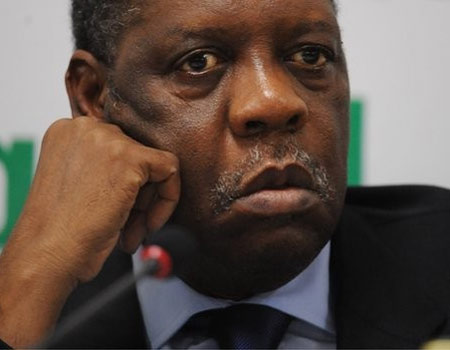ON Thursday, March 16, the Congress of the Confederation of African Football (CAF) voted to elect Ahmad Ahmad, head of the Malagasy Football Federation, president of African football’s supreme body. Mr. Ahmad defeated the incumbent, Cameroon’s long-serving Issa Hayatou, by 34 to 20 votes, ending a presidency that began in 1988 when the six-foot-five Hayatou took over the reins from the late Sudanese medical doctor, Abdel Halim Muhammad.
Mr. Hayatou’s defeat caught many pundits and observers of the African football scene by surprise. Such was his influence and hold on the soccer governing body that he had been widely expected to clinch an unprecedented eighth term as president. Instead, it was the 57-year-old Ahmad Ahmad who coasted to victory, effectively bringing down the curtains on the Hayatou era. Because he was in the saddle for such a long time (29 years), a period that coincided with significant transformations in the global and continental game, assessment of Mr. Hayatou’s tenure is bound to divide opinion.
At the best of times, Mr. Hayatou pressed his imposing frame and irrepressible charisma to the cause of improving the quality of the game in Africa and its position in the global hierarchy. In that regard, he was largely successful. Though the ultimate prize—winning the football World Cup—continues to elude the continent, this cannot be pinned on a single individual, not even one as powerful and charismatic as Mr. Hayatou who, to his credit, was instrumental to the decision to award the hosting of the tournament to an African country (South Africa) for the first time in 2010.
Similarly, he was pivotal to the Federation of International Football’s (FIFA) decision to increase the number of African participants in the quadrennial World Cup tournament to five. It was a meagre two when Mr. Hayatou took the reins in 1988. If, as speculated, the number eventually increases to 10 in the immediate future, it will be because of the shift that CAF under his leadership underwent. Indeed when, in 2015, Mr. Hayatou became acting FIFA president following the banning of former president Sepp Blatter from all football-related activities by the federation’s Ethics Committee, many Africans took vicarious pride in his appointment. In retrospect, this was the apogee of Mr. Hayatou’s accomplishments.
On the other hand, Mr. Hayatou was always a controversial figure. Many journalists found him too patronising, and even his defenders often regretted his haughtiness. His overall disposition was all too reminiscent of the average African politician, meaning that he liked democracy in theory, but in practice, he seemed impatient with any kind of disagreement. Ultimately, and perhaps unsurprisingly given his own temperament, he did little to change the hyper masculine Old Boys’ culture that many see as the perennial bane of CAF.
As Mr. Ahmad Ahmad takes over, his work seems cut out for him. Following the gale of corruption that swept Mr. Blatter out of the FIFA presidency, and whose ripples arguably consumed Mr. Hayatou, public scrutiny of football has never been more intense. It is up to Mr. Ahmad to show that he understands the shift in the global mood, and to continue where Mr. Hayatou stopped in efforts to guide African football—male and female—into the mainstream of world football.






